Shuggie Bain: The Million-Copy Bestseller
£8.50£9.50 (-11%)
Winner of the Booker Prize
Winner of ‘Book of the Year’ and ‘Debut of the Year’ at the British Book Awards
The Million-Copy Bestseller
‘An amazingly intimate, compassionate, gripping portrait of addiction, courage and love.’ – The judges of the Booker Prize
‘Douglas Stuart has written a first novel of rare and lasting beauty.’ – Observer
It is 1981. Glasgow is dying and good families must grift to survive. Agnes Bain has always expected more from life, dreaming of greater things. But Agnes is abandoned by her philandering husband, and as she descends deeper into drink, the children try their best to save her, yet one by one they must abandon her to save themselves.
It is her son Shuggie who holds out hope the longest. Shuggie is different, he is clearly no’ right. But Shuggie believes that if he tries his hardest, he can be normal like the other boys and help his mother escape this hopeless place.
Shuggie Bain lays bare the ruthlessness of poverty, the limits of love, and the hollowness of pride. For readers of A Little Life and Angela’s Ashes, it is a heartbreaking novel by a brilliant writer with a powerful and important story to tell.
‘A heartbreaking novel’ – The Times
‘Tender and unsentimental . . . The Billy Elliot-ish character of Shuggie . . . leaps off the page.’ – Daily Mail
Read more
Additional information
| Publisher | Picador, Main Market edition (15 April 2021) |
|---|---|
| Language | English |
| Paperback | 480 pages |
| ISBN-10 | 152901929X |
| ISBN-13 | 978-1529019292 |
| Reading age | 18 years and up |
| Dimensions | 12.9 x 3 x 19.7 cm |

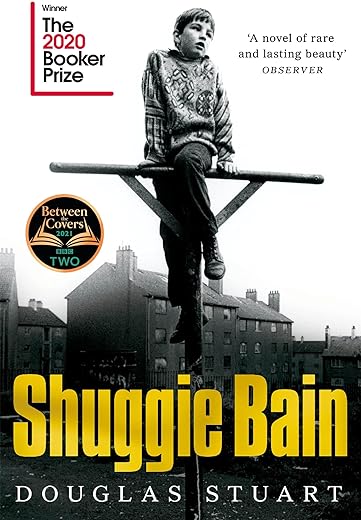
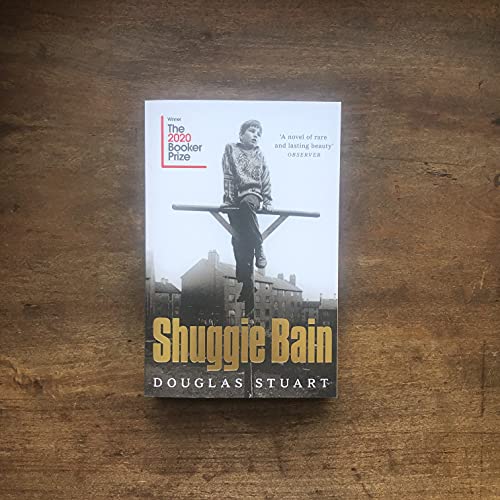
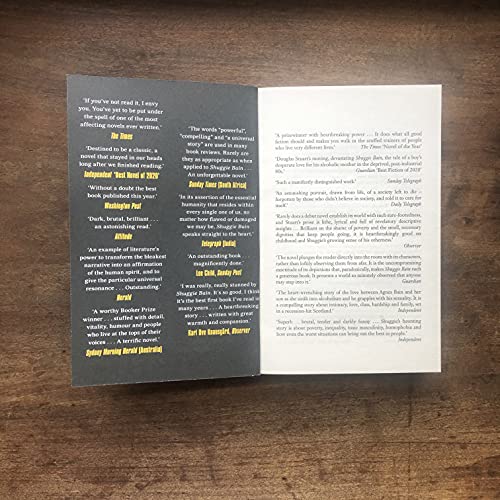
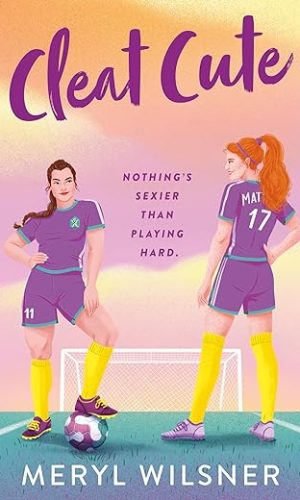
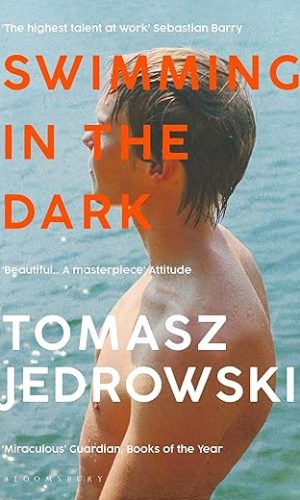

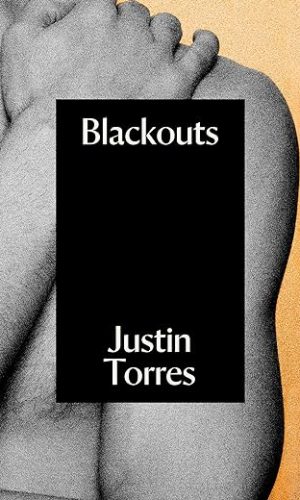

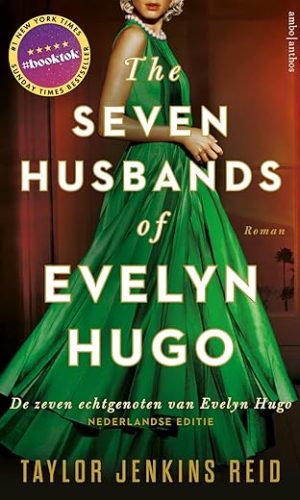
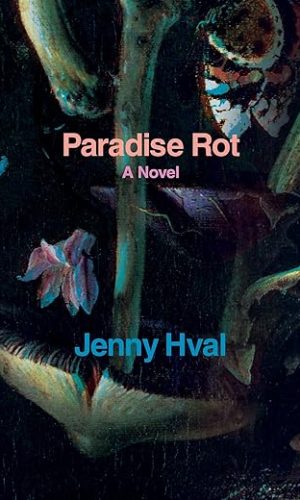
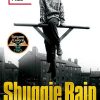
by PENNY
Despite the very Glaswegian writing- this is lucid and excellent.
by Mark Rasdall
I sometimes struggle with my perception of Booker Prize-winning books: will they be ‘too clever’ for me, or will they open my eyes in ways that ‘lesser books’ fail to do? Will I go beyond the covers with a truly open mind, or do I embark on the fictional journey with baggage in my mind telling me that it will either not be as good as other learned people say it is… or it will be even better?
I had picked up copies of Shuggie Bain in Waterstones a number of times, read the blurb and picked though a few of the pages, before deciding that the colloquialisms and sometimes impenetrable Glaswegian phrases would be in the ‘too difficult’ box for me to understand. Then, one day, I set these worries aside and went for it, proudly carrying my copy back to my lovely house in the Worcestershire countryside before settling down and quickly descending into a world of addiction, poverty and hopelessness.
Shuggie’s mother, Agnes, is an alcoholic – a condition which becomes worse as we turn the pages on a helpless situation. Rejecting her first husband and moving her family out of her parents’ tiny flat in Glasgow to a former mining community on the city’s edges felt like a one-way street with few real alternatives to left or right. Shuggie effectively becomes his mother’s carer, and the development of that gentle, caring nature accompanies a discovery and awareness of his own sexuality. We care for Shuggie because he is doing his best in the face of remorseless poverty of kitchen cupboard and spirit.
It would be easy to assume that Agnes’s alcoholism renders her far less to blame for what unfolds in the book than the addiction itself; this is compounded by the fact that Agnes is a beautiful-looking woman – and plenty of men look, and take, and leave, including Shuggie’s father. Thankfully his half brother does what he can for Shuggie before, like his sister, seeing how hopeless the fight is to rescue Agnes, he can clearly see that he needs to save himself. However, I found Agnes somewhat superior and not a little arrogant, which made her even more of a target to be knocked down by just about everybody she came into contact with.
Set mainly during the time of the Thatcherite mine closures in the early 1980s there are some obvious parallels with ‘Billy Elliot,’ although I found the grinding poverty of working-class existence and joyless resistance to change controlled by others far more compelling on these pages than on a silver screen. There seem to be no silver linings here, even when we meet Shuggie again some ten years later.
I did indeed struggle with some of the language, but clearly that is the essence of the book’s authenticity. I found the unrelenting darkness of the novel hard to see through for much of the time and I cannot say that it was a joy to read; certainly not ‘beautiful’ as one or more of the Booker judges described it. However, Shuggie’s resolve in the face of all that ‘life’ threw at him, from desperate hunger to bullying to the possible sexual violence he too would encounter in the future, was as incredible as it was heart-breaking.
I believe the book was better than my learned friends indicated that it was, and I feel that my horizons have been suitably stretched way beyond the hills I see from my window; like many readers of this book, I’m sure, I thank my lucky stars that they, along with time and space, shine down more brightly on me than the subjects of such frightening shadows.
by Anonymous
Douglas Stewart is a gifted writer; he is particularly good when describing human behaviour, good with metaphor and excellent at helping the reader visualise living, breathing characters in motion. This book really should have been called Agnes Bain, as the entire book is a love-letter from Shuggie (Agnes’s son) to his mother, despite her relentless alcoholism. It is bleak, but punctuated with humour and humanity. The most unsatisfactory part of the book is the fact that Shuggie – the character named in the title – feels a bit under-developed; I kept waiting for the story to centre on him, but he only seemed to exist as a supporting act to his mother; his siblings Leek and Catherine are even more lightly sketched. All of that aside, it’s a great book – I loved the Scots dialogue and the authentic descriptions of a life lived in poverty in 1980s Britain. If you like this style of writing, try Young Mungo, which is fantastic…
by reggie
I read this book and can relate to the unemployment, the poverty and the destruction of communities that happened in Scotland at this time and still does .
I do have one big gripe with this book and it is the way he has portrayed the mining community
I was brought up in a mining community before during and after the closure of the pits by Thatcher and her toxic government
The author portrays the miners as heartless dirty useless drunkards and the women as feckless loveless hags The children run around as feral animals covered in filth He sees the community as people with no pride in themselves.
He describes a scene where a woman has just found out her husband has cheated on her ,she is outside and rips her skirt in distress to reveal she has no underwear on! as if to suggest she is such a slob she can’t be bothered to cover her dignity. Shame on him for his portrayal of these women
The mining community I know are proud hard working resourceful people who look after each other Who are intelligent and quick witted especially when it comes to politics
Gardens are their pride, my family and neighbours gardens had blossoming flower beds in the front and an array of vegetables in the back garden. They also tended allotments. We were all well feed with an abundance of healthy fresh fruit and vegetables not just boiled cabbage.
We were all spotlessly clean as well due to the diligence of the women. Miners working in thick black coal dust day in day out didn’t give in to it, they hated it. If you met a miner after work or on his days off you would be hard pressed to find a more clean spotlessly tidy man and mums made sure their families were the same . Ah but not according to the author They were all filthy stoor covered inbreds(everyone is a cousin )
with no pride in how they dressed.
I recently read an interview he gave describing his upbringing and I am happy hes has done so well however
It has made me very angry that this book will be read world wide and he has given the impression that this is how we lived.
Sighthill looked like utopia compared to Pit head I am not impressed.
.